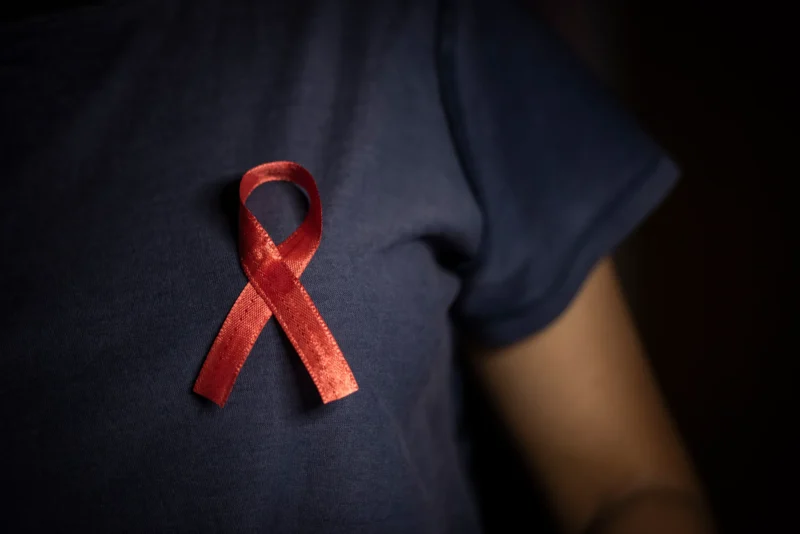The number of newly diagnosed HIV cases in the Czech Republic rose by 6.3% last year compared to the previous year, reaching 269 cases. The proportion of foreign residents, who have made up the majority of cases in the past two years, declined. Last year’s figure of 41.6% was the lowest in the past five years.
In recent years, the share of people infected through heterosexual contact has been increasing, reaching nearly one-third of cases last year. This was reported on Friday by the National Reference Laboratory (NRL) for HIV/AIDS at the National Institute of Public Health (SZÚ).
Among the cases registered by the NRL last year, 157 were Czech citizens, while 112 were foreign residents. The most affected group among foreigners were Ukrainians without refugee status—41 individuals. Other cases included 10 Slovaks, 7 Moldovans, 5 Russians, and 4 Poles.
In 57 cases, the foreigners already knew about their HIV diagnosis, as it had been confirmed abroad. “Since 2020, we have observed a significantly higher number of newly registered cases where individuals were already aware of their HIV-positive status,” the NRL stated.
Among the new cases, there were 230 men and 39 women, with an average age of just under 39 years. Nearly 87% of infections were transmitted sexually, with almost 58% of diagnosed cases involving men who have sex with men.
“Transmission among men has long been the dominant characteristic of HIV infection in the country,” the NRL reported, adding that heterosexual transmission has increased over the past five years. Last year, 89 cases—nearly one-third—were attributed to heterosexual transmission.
Data on Ukrainian refugees is recorded separately. Since the start of the war in Ukraine until the end of last year, 856 refugees have been registered, including 540 women and 316 men. Among them were 21 children under the age of 15. Three-fifths of these refugees were already aware of their HIV-positive status and had been receiving treatment in Ukraine, seeking to continue their care in the Czech Republic.
“Most refugee cases were recorded immediately after the conflict began, but their numbers declined in the following months. Since mid-2023, the monthly number of newly registered HIV-positive refugees has remained stable at around ten cases,” the NRL stated.
Since monitoring began in 1985, a total of 4,888 HIV cases have been confirmed in the Czech Republic, including 1,524 among foreigners. A total of 922 people have developed AIDS.
HIV attacks lymphocytes, which are essential for the immune system.
Over approximately eight years, this type of white blood cell is gradually destroyed, leading to the development of AIDS. Without treatment, AIDS can be fatal within a few years. However, modern medications now allow infected individuals to effectively halt disease progression.




